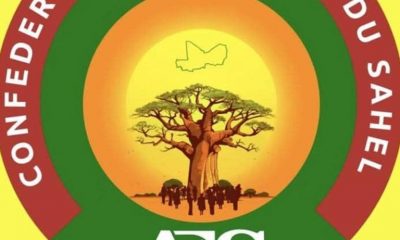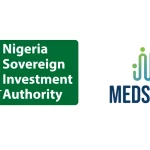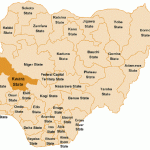World
Besides Mali, Russia Keenly Interest in Five-Nation Sahel Group
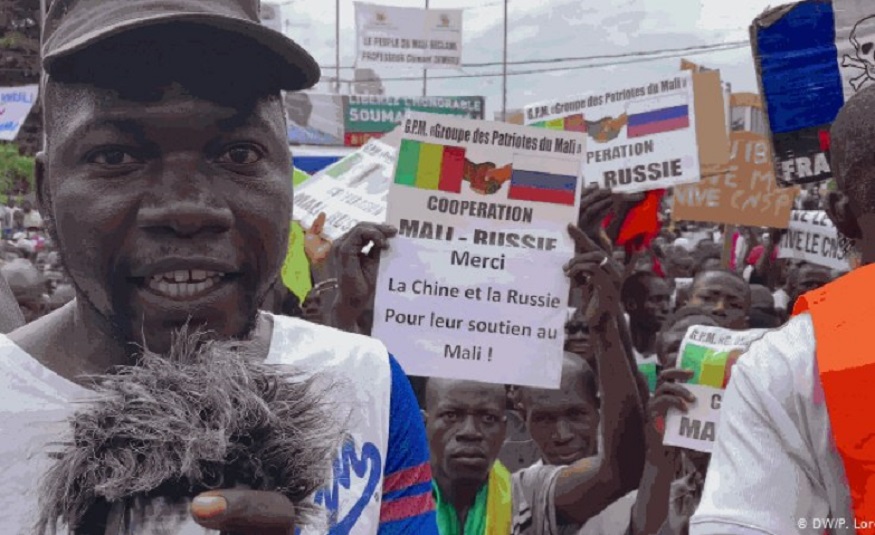
By Kester Kenn Klomegah
Russia’s alleged involvement in the political change on August 18 in Mali, a former French colony with the fractured economy and breeding field for armed Islamic jihadist groups (some of which are reportedly aligned with Al Qaeda and ISIS), demonstrates the first drastic step towards penetrating into the G5 Sahel in West Africa. The G5 Sahel are Burkina Faso, Chad, Mali, Mauritania and Niger.
Despite this widely published allegation, Moscow officially said it was seriously concerned about the developments in Bamako and further urged “all Malian public and political forces to settle the situation peacefully at the negotiating table”.
Russian Foreign Ministry said on its website that on August 21, at the invitation of the leaders of the military group, who seized power in Mali, Russian Ambassador in Bamako Igor Gromyko met with the leader of the National Committee for the Salvation of the People, Colonel Assimi Goita, at the military base in the town of Katiа located not far from the capital.
The statement said: “At his own initiative, Assimi Goita informed the Russian Ambassador about the reasons that prompted the military to remove President Ibrahim Boubacar Keita and the Malian Government from power, as well as about the committee’s priority steps to restore order in the country and set up the operation of government bodies.
“The leaders of the National Committee for the Salvation of the People held similar meetings with the ambassadors of several other countries, including China and France.”
According to several reports, Ibrahim Keita was overthrown following mass protests against his rule over deep-rooted corruption, mismanagement of the economy and a dispute over legislative elections.
In addition to socio-economic problems, Mali is now facing the task of protecting its territorial integrity and combating the terrorist threat.
Internal unrest in the country has greatly undermined Malians’ ability to contribute to the collective efforts of the Sahara-Sahel countries, including the G5 Sahel group of Burkina Faso, Chad, Mali, Mauritania and Niger, which is focused on combating terrorism.
While updating the implications of the recent coup, in Mali on the entire G5 Sahel region, it is important to know more about the leaders of the coup, and the foreign countries and players who might have aided the army to topple the democratic and legitimate government of President Ibrahim Boubacar Keita. The Economist article of August 19, titled What next for Mali?, which is enclosed here:
The narratives are that the coup led by Malick Diaw and Sadio Camara, two army colonels who hold top positions at the Kati military base, are reportedly very close friends. The two colonels spent most of this year training in Russia before returning to Mali and to topple the government, which could imply that most probably they might have hatched and organized the coup whilst in Russia (read), and this implied that the Russians might have known about their political plans in Mali.
Many experts say Russia has its own distinctive style and approach, set out to battle against exploitation of resources, or better still what is often phrased “the scramble for resources” in Africa.
Besides dealing with the French, Russia is keenly interested in the uphill fight against “neo-colonial tendencies” exhibited by the US (read), EU (read), and Chinese (read) interests and influence in Africa.
As already showcased in Mali, experts told IDN that as Russia looks for “strategic allies” in the continent, so working to remove African leaders loyal to former colonial masters fits squarely into Russia’s renewed interest and strategy in Africa.
Research Professor Irina Filatova at the Higher School of Economics in Moscow explains to IDN that media reports have linked the developments to Russia, that however “people who are now in power will be friendlier with Russia than the previous government. The Russians are not seriously interested in democratic institutions, they are interested in people who are close to it.”
In the short term or better still in the long term, it is hard to be optimistic for Mali, among the fragile countries in the Sahel, especially the importance of seeking stability, building the infrastructure and improving the economy. The region is experiencing the spread of Islamic extremist insurgency and rapidly-eroding state legitimacy.
On the other hand, Mali’s challenges are almost the same throughout Africa: deep-seated corruption, heightened nepotism, ethnic violence and economic malaise. The African leaders lust for power in spite of bad governance. Civil society platforms have meanwhile called for deep reforms, especially on electoral laws and the administrative machinery in Mali.
Mali, home to nearly 20 million people, is a landlocked country located on rivers Senegal and Niger in West Africa. As a former French colony, it persistently faces serious development challenges primarily due to its landlocked position and it is the eighth-largest country in Africa.
Over the years, reform policies have had little impact on the living standards, majority highly impoverished in the country. As a developing country, it ranks at the bottom of the United Nations Development Index (2018 report).
Russia is broadening its geography of diplomacy covering poor African countries and especially fragile states that need Russia’s military assistance.
Niger, for example, has been on its radar. Russia, meanwhile, sees some potential there – as a possible gateway into the Sahel. In order to realize this, Russia has been working on the official visit for Mahamadou Issoufou who has been the President of Niger since April 2011. Before that, Issoufou was the Prime Minister of Niger from 1993 to 1994.
Last year, on September 19, when Niger’s Foreign Minister Kalla Ankourao paid a working visit to Moscow, Foreign Minister Sergey Lavrov pointed to two basic facts.
The first was “the Russian Federation looks forward to stepping up cooperation in all spheres, and international matters and crisis resolution on the African continent are also very much relevant for us.”
The second was that “the meeting has special significance since in the next two years Niger is a non-permanent member of the UN Security Council. Russia and Niger hope to work closely together within this important international body.”
Since Niger holds a non-permanent seat at the UN Security Council in 2020-2021, Sergey Lavrov and Kalla Ankourao have been focusing on in-depth discussions on matters relating to the fight against terrorism and extremism in the context of collective efforts to root out these threats, particularly within the G5 Sahel region in Africa.
As Russia pushes to strengthen its overall profile in the G5 Sahel region, in July 2019, Deputy Foreign Minister Mikhail Bogdanov held talks with the President of Burkina Faso, Christian Kaboré and further discussed military-technical cooperation with the Minister of National Defense and Veteran Affairs, Moumina Sheriff Sy. He also had business talks with Minister for Foreign Affairs and International Cooperation of Burkina Faso, Alpha Barry, and Vice-President of the National Assembly of Burkina Faso, K. Traore.
Last year in August, Bogdanov attended the inauguration of Mauritanian President Mohamed Ould Ghazouani. The President of Mauritania was elected on Jun 22, 2019. Both discussed ways for strengthening the existing relations. Moscow and Nouakchott look for additional dynamics to the development of mutually beneficial cooperation in various fields.
According to the official information posted to the ministry’s website, Bogdanov described his meetings “providing the impetus to explore opportunities for effective collaboration in the Sahel region.”
Vedomosti, a Russian daily Financial and Business newspaper, reported that Russia is interested in offering Mali and the Sahel countries military equipment. The Malian government and Russian state-owned arms trader Rosoboronexport could soon sign contracts on the delivery of Russian-made combat and transport helicopters, armoured personnel carriers, small arms and ammunition to the African country, the Vedomosti newspaper reported.
The Russian weapons requested by Mali’s government will be given to its soldiers in the north of the country, where the Malian Armed Forces, as well as soldiers from France and a number of African states, are fighting Islamist militants, a Rosoboronexport source told Vedomosti.
“The French side is highly unlikely to object to equipping the Malian Army with Russian-made weapons because these weapons are more familiar to the Malian Army, where some 7,000 people serve in the Land Forces and another 400 in the Air Force,” the source said. It also that the fight “against international terrorist groups, whose growing activity is seen in the Sahara Sahel region.”
Russian Foreign Ministry has explained in a statement released on its website, that Russia’s military-technical cooperation with African countries is primarily directed at settling regional conflicts and preventing the spread of terrorist threats and to fight the growing terrorism in the continent. Worth noting here that Russia, in its strategy on Africa is reported to be also looking into building military bases in the continent.
Over the past years, strengthening military-technical cooperation has been part of the foreign policy of the Russian Federation. Russia has signed bilateral military-technical cooperation agreement nearly with all African countries. Researchers say further that it plans to build military bases as this article explicitly reported, among others.
Edward Lozansky, President of the American University in Moscow and professor of World Politics at Moscow State University, told IDN in an email that “there has not been too much information about Russia’s activities in Africa, but the Western media is saturated with the scary stories about Russia’s efforts to bolster its presence in at least 13 countries across Africa by building relations with existing rulers, striking military deals, and grooming a new generation of leaders and undercover agents.”
Further to the narratives, Russia has now embarked on fighting “neo-colonialism” which it considers as a stumbling block on its way to regain a part of the Soviet-era multifaceted influence in Africa. Russia has sought to convince Africans over the past years of the likely dangers of neocolonial tendencies perpetrated by the former colonial countries and the scramble for resources on the continent. But all such warnings largely seem to fall on deaf ears as African leaders choose development partners with funds to invest in the economy.
Experts suspected that Russia’s plan to bring about regime change in Mali could see Russia-friendly new leaders taking over the country from the French-friendly President Ibrahim Boubacar Keita and his government, thereby dealing a severe blow to French influence and interests not just in Mali but throughout the Sahel region.
Research Professor Irina Filatova at the Higher School of Economics in Moscow explains to IDN that “Russia’s influence in the Sahel has been growing just as French influence and assistance has been dwindling, particularly in the military sphere. It is for the African countries to choose their friends, but it would be better to deal directly with the government, than with (mercenaries of the Russian) Wagner, which group, whose connection with the government was barely recognized.”
In very particular cases, she unreservedly suggested: “If they wanted the Russians to come and fight Islamist groups, it would be much better to ask the government to send regular troops. Wagner’s vigilantes are not responsible to anybody, and the Russian government may refuse to take any responsibility for whatever they do in case something goes wrong.”
While the African Union (AU), regional blocs and African leaders remain indifferent, Russia has expressed concern and takes the task to fight “neocolonialism” in Africa. It has sought to convince Africans over the past years of the likely dangers of neocolonial tendencies perpetrated by the former colonial countries and the scramble for resources on the continent. But all such warnings largely seem to fall on deaf ears as African leaders choose development partners with funds to invest in the economy.
But these have different interpretations as African leaders still show loyalty to their former colonizers. Neocolonialism can be seen as a new form of domination, plunder and exploitation using clandestine and economic statecraft.
Of course, there could be some hints or pointers to neocolonial tendencies, but such claims should be levelled on case by case basis, and there has to be concrete evidence to suggest that way, explains Dr. Frangton Chiyemura, a lecturer in International Development at the School of Social Sciences and Global Studies, Open University in the United Kingdom.
In his objective opinion, Chiyemura further believes “as there is no free lunch in the world, African countries should enter into partnerships based on their strategic interests and an understanding of what the partners can provide or deliver.”
Secondly, every African country should do a comprehensive evaluation of the structure and, the terms and conditions of their engagements with foreign powers. By so doing, this will eliminate the chances for the emergence of claims of neocolonialism. Instead of extending the blame to someone elsewhere, Africa needs to do its homework especially on the implementation and monitoring aspects of the deals. Africa has some of the best regulations and standards, but the problem lies in implementation and monitoring, the development expert suggested in an e-mailed discussion with IDN.
Interestingly, Sochi hosted the first summit in October 2019 devoted to interaction between Russia and Africa. That event opened up a new page in the history of Russia’s relations with African countries, President Vladimir Putin told the gathering: “We are ready to continue working together to strengthen mutually beneficial cooperation. But we are also aware of the host of problems facing Africa that need to be settled.”
In his view, “this new stage and this new quality of our relations should be based on common values. We are at one in our support for the values of justice, equality and respect for the rights of African states to, independently choose their future. It is within this framework that we will continue to coordinate our positions at international platforms and joint efforts in the interests of stability on the African continent.”
Russia-Africa relations is based on long-standing traditions of friendship and solidarity created when the Soviet Union supported the struggle of the peoples of Africa against colonialism, racism and apartheid, protected their independence and sovereignty, and helped establish statehood, and build the foundations of the national economy, according to historical documents available at the website of Kremlin.
The African Union, Economic Community of West African States (ECOWAS) and foreign organizations such as the European Union (EU) and the United Nations (UN) have requested a quick transition to a civilian government. They further urged that efforts are taken to resolve outstanding issues relating to sustainable development and observing strictly principles of democracy.
All these organizations have utterly denounced the coup. What follows now will be negotiations over the transitional arrangements and the timetable for new elections. This will not be straightforward. Although the opposition was united in their demand for Keita’s resignation there is little consensus on what to do next, while the UN Security Council and ECOWAS are divided on how to respond beyond initial condemnation.
United Nations Secretary-General Antonio Guterres, spoke out against the coup as well saying that the situation should be returned to normal under the elected civilian government in Mali. In addition, an official statement was issued by the AU Commission Chair on the situation in Mali. It says in part: “The AU Chairperson calls on the Economic Community of West African States (ECOWAS), the United Nations and the entire international community to combine collective efforts to oppose any use of force as a means to end the political crisis in Mali.”
Beyond condemning developments in Mali, the African Union and the regional blocs have to consistently remind African leaders to prioritize sustainable development goals and understand the basic principle through which they were elected: the electorate and the people. That makes it utterly necessary to engage them in development decision-making processes and use available resources to improve their communities – these are the drivers of the expected lasting change needed in Africa.
Kester Kenn Klomegah writes frequently about Russia, Africa and BRICS. This article was first and originally published by IndepthNews.
World
Today’s Generation of Entrepreneurs Value Flexibility, Autonomy—McNeal-Weary

By Kestér Kenn Klomegâh
The Young African Leaders Initiative (YALI) is the United States’ signature step to invest in the next generation of African leaders. Since its establishment in 2010 by Obama administration, YALI has offered diverse opportunities, including academic training in leadership, governance skills, organizational development and entrepreneurship, and has connected with thousands of young leaders across Africa. This United States’ policy collaboration benefits both America and Africa by creating stronger partnerships, enhancing mutual prosperity, and ensuring a more stable environment.
In our conversation, Tonya McNeal-Weary, Managing Director at IBS Global Consulting, Inc., Global Headquarters in Detroit, Michigan, has endeavored to discuss, thoroughly, today’s generation of entrepreneurs and also building partnerships as a foundation for driving positive change and innovation in the global marketplace. Here are the excerpts of her conversation:
How would you describe today’s generation of entrepreneurs?
I would describe today’s generation of entrepreneurs as having a digital-first mindset and a fundamental belief that business success and social impact can coexist. Unlike the entrepreneurs before them, they’ve grown up with the internet as a given, enabling them to build global businesses from their laptops and think beyond geographic constraints from day one. They value flexibility and autonomy, often rejecting traditional corporate ladders in favor of building something meaningful on their own terms, even if it means embracing uncertainty and financial risk that previous generations might have avoided.
And those representing the Young African Leaders Initiative, who attended your webinar presentation late January 2026?
The entrepreneurs representing the Young African Leaders Initiative are redefining entrepreneurship on the continent by leveraging their unique perspectives, cultural heritage, and experiences. Their ability to innovate within local contexts while connecting to global opportunities exemplifies how the new wave of entrepreneurs is not confined by geography or conventional expectations.
What were the main issues that formed your ‘lecture’ with them, Young African Leaders Initiative?
The main issues that formed my lecture for the Young African Leaders Initiative were driven by understanding the importance of building successful partnerships when expanding into the United States or any foreign market. During my lecture, I emphasized that forming strategic alliances can help entrepreneurs navigate unfamiliar business environments, access new resources, and foster long-term growth. By understanding how to establish strong and effective partnerships, emerging leaders can position their businesses for sustainable success in global markets. I also discussed the critical factors that contribute to successful partnerships, such as establishing clear communication channels, aligning on shared goals, and cultivating trust between all parties involved. Entrepreneurs must be proactive in seeking out partners who complement their strengths and fill gaps in expertise or resources. It is equally important to conduct thorough due diligence to ensure that potential collaborators share similar values and ethical standards. Ultimately, the seminar aimed to empower YALI entrepreneurs with practical insights and actionable strategies for forging meaningful connections across borders. Building successful partnerships is not only a pathway to business growth but also a foundation for driving positive change and innovation in the global marketplace.
What makes a ‘leader’ today, particularly, in the context of the emerging global business architecture?
In my opinion, a leader in today’s emerging global business architecture must navigate complexity and ambiguity with a fundamentally different skill set than what was previously required. Where traditional leadership emphasized command-and-control and singular vision, contemporary leaders succeed through adaptive thinking and collaborative influence across decentralized networks. Furthermore, emotional intelligence has evolved from a soft skill to a strategic imperative. Today, the effective modern leader must possess deep cross-cultural intelligence, understanding that global business is no longer about exporting one model worldwide but about genuinely integrating diverse perspectives and adapting to local contexts while maintaining coherent values.
Does multinational culture play in its (leadership) formation?
I believe multinational culture plays a profound and arguably essential role in forming the kind of leadership required in today’s global business environment. Leaders who have lived, worked, or deeply engaged across multiple cultural contexts develop a cognitive flexibility that’s difficult to replicate through reading or training alone. More importantly, multinational exposure tends to dismantle the unconscious certainty that one’s own way of doing things is inherently “normal” or “best.” Leaders shaped in multicultural environments often develop a productive discomfort with absolutes; they become more adept at asking questions, seeking input, and recognizing blind spots. This humility and curiosity become strategic assets when building global teams, entering new markets, or navigating geopolitical complexity. However, it’s worth noting that multinational experience alone doesn’t automatically create great leaders. What matters is the depth and quality of cross-cultural engagement, not just the passport stamps. The formation of global leadership is less about where someone has been and more about whether they’ve developed the capacity to see beyond their own cultural lens and genuinely value differences as a source of insight rather than merely tolerating them as an obstacle to overcome.
In the context of heightening geopolitical situation, and with Africa, what would you say, in terms of, people-to-people interaction?
People-to-people interaction is critically important in the African business context, particularly as geopolitical competition intensifies on the continent. In this crowded and often transactional landscape, the depth and authenticity of human relationships can determine whether a business venture succeeds or fails. I spoke on this during my presentation. When business leaders take the time for face-to-face meetings, invest in understanding local priorities rather than imposing external agendas, and build relationships beyond the immediate transaction, they signal a different kind of partnership. The heightened geopolitical situation actually makes this human dimension more vital, not less. As competition increases and narratives clash about whose model of development is best, the businesses and nations that succeed in Africa will likely be those that invest in relationships characterized by reciprocity, respect, and long-term commitment rather than those pursuing quick wins.
How important is it for creating public perception and approach to today’s business?
Interaction between individuals is crucial for shaping public perception, as it influences views in ways that formal communications cannot. We live in a society where word-of-mouth, community networks, and social trust areincredibly important. As a result, a business leader’s behavior in personal interactions, their respect for local customs, their willingness to listen, and their follow-through on commitments have a far-reaching impact that extends well beyond the immediate meeting. The geopolitical dimension amplifies this importance because African nations now have choices. They’re no longer dependent on any single partner and can compare approaches to business.
From the above discussions, how would you describe global business in relation to Africa? Is it directed at creating diverse import dependency?
While it would be too simplistic to say global business is uniformly directed at creating import dependency, the structural patterns that have emerged often produce exactly that outcome, whether by design or as a consequence of how global capital seeks returns. Global financial institutions and trade agreements have historically encouraged African nations to focus on their “comparative advantages” in primary commodities rather than industrial development. The critical question is whether global business can engage with Africa in ways that build productive capacity, transfer technology, develop local talent, and enable countries to manufacture for themselves and for export—or whether the economic incentives and power irregularities make this structurally unlikely without deliberate policy intervention.
World
Russia Expands Military-Technical Cooperation With African Partners

By Kestér Kenn Klomegâh
Despite geopolitical complexities, tensions and pressure, Russia’s military arms and weaponry sales earned approximately $15 billion at the closure of 2025, according to Kremlin report. At the regular session, chaired by Russian President Vladimir Putin on Jan. 30, the Commission on Military and Technical Cooperation with Foreign Countries analyzed the results of its work for 2025, and defined plans for the future.
It was noted that the system of military-technical cooperation continued to operate in difficult conditions, and with increased pressure from the Western countries to block business relations with Russia. The meeting, however, admitted that export contracts have generally performed sustainably. Russian military products were exported to more than 30 countries last year, and the amount of foreign exchange exceeded $15 billion.
Such results provide an additional opportunity to direct funds to the modernization of OPC enterprises, to the expansion of their production capacities, and to advanced research. It is also important that at these enterprises a significant volume of products is civilian products.
The Russian system of military-technical cooperation has not only demonstrated effectiveness and high resilience, but has created fundamental structures, which allow to significantly expand the “geography” of supplies of products of military purpose and, thus strengthen the position of Russia’s leader and employer advanced weapons systems – proven, tested in real combat conditions.
Thanks to the employees of the Federal Service for Military Technical Cooperation and Rosoboronexport, the staff of OPC enterprises for their good faith. Within the framework of the new federal project “Development of military-technical cooperation of Russia with foreign countries” for the period 2026-2028, additional measures of support are introduced. Further effective use of existing financial and other support mechanisms and instruments is extremely important because the volumes of military exports in accordance with the 2026 plan.
Special attention would be paid to the expansion of military-technological cooperation and partnerships, with 14 states already implementing or in development more than 340 such projects.
Future plans will allow to improve the characteristics of existing weapons and equipment and to develop new promising models, including those in demand on global markets, among other issues – the development of strategic areas of military-technical cooperation, and above all, with partners on the CIS and the CSTO. This is one of the priority tasks to strengthen both bilateral and multilateral relations, ensuring stability and security in Eurasia.
From January 2026, Russia chairs the CSTO, and this requires working systematically with partners, including comprehensive approaches to expanding military-technical relations. New prospects open up for deepening military-technical cooperation and with countries in other regions, including with states on the African continent. Russia has been historically strong and trusting relationships with African countries. In different years even the USSR, and then Russia supplied African countries with a significant amount of weapons and military equipment, trained specialists on their production, operation, repair, as well as military personnel.
Today, despite pressure from the West, African partners express readiness to expand relations with Russia in the military and military-technical fields. It is not only about increasing supplies of Russian military exports, but also about the purchase of other weapons, other materials and products. Russia has undertaken comprehensive maintenance of previously delivered equipment, organization of licensed production of Russian military products and some other important issues. In general, African countries are sufficient for consideration today.
World
Trump Picks Kevin Warsh to Succeed Jerome Powell as Federal Reserve Chair
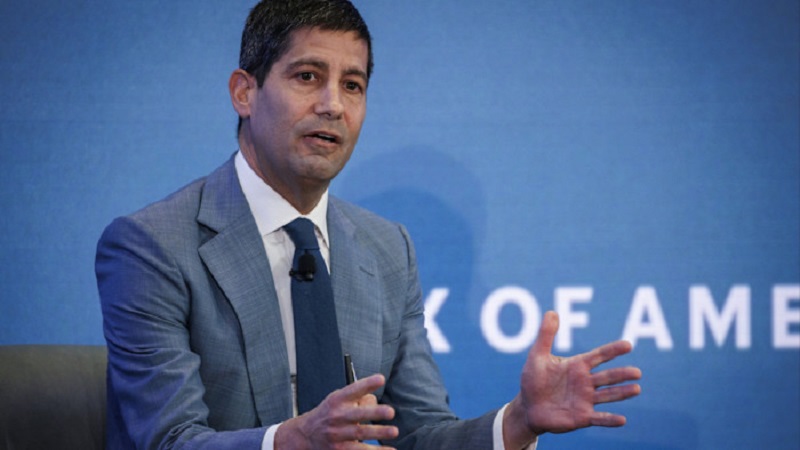
By Adedapo Adesanya
President Donald Trump has named Mr Kevin Warsh as the successor to Mr Jerome Powell as the Federal Reserve chair, ending a prolonged odyssey that has seen unprecedented turmoil around the central bank.
The decision culminates a process that officially began last summer but started much earlier than that, with President Trump launching a criticism against the Powell-led US central bank almost since he took the job in 2018.
“I have known Kevin for a long period of time, and have no doubt that he will go down as one of the GREAT Fed Chairmen, maybe the best,” Mr Trump said in a Truth Social post announcing the selection.
US analysts noted that the 55-year old appear not to ripple market because of his previous experience at the apex bank as Governor, with others saying he wouldn’t always do the bidding of the American president.
If approved by the US Senate, Mr Warsh will take over the position in May, when Mr Powell’s term expires.
Despite having argued for reductions recently, “Warsh has a long hawkish history that markets have not forgotten,” one analyst told Bloomberg.
President Trump has castigated Mr Powell for not lowering interest rates more quickly. His administration also launched a criminal investigation of Powell and the Federal Reserve earlier this month, which led Mr Powell to issue an extraordinary rebuke of President Trump’s efforts to politicize the independent central bank.
-

 Feature/OPED6 years ago
Feature/OPED6 years agoDavos was Different this year
-
Travel/Tourism9 years ago
Lagos Seals Western Lodge Hotel In Ikorodu
-

 Showbiz3 years ago
Showbiz3 years agoEstranged Lover Releases Videos of Empress Njamah Bathing
-

 Banking8 years ago
Banking8 years agoSort Codes of GTBank Branches in Nigeria
-

 Economy3 years ago
Economy3 years agoSubsidy Removal: CNG at N130 Per Litre Cheaper Than Petrol—IPMAN
-

 Banking3 years ago
Banking3 years agoSort Codes of UBA Branches in Nigeria
-

 Banking3 years ago
Banking3 years agoFirst Bank Announces Planned Downtime
-

 Sports3 years ago
Sports3 years agoHighest Paid Nigerian Footballer – How Much Do Nigerian Footballers Earn


